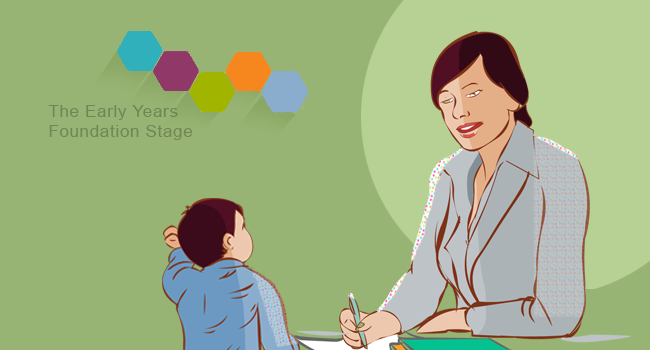The early years of a child’s life are crucial. Foundations for future choices, attainments and well being are built during these years. Children should receive guidance, care and love during the early years.
The Early Years Foundation Stage (EYFS) is a syllabus that sets standard for learning and development of children from birth to 5 years of age. The goals of EYFS are impossible to achieve without the support of responsible teachers.
What is an ideal teacher?
“A good teacher can inspire hope, ignite the imagination, and instil a love of learning” – Brad Henry
Any teacher who has a mission and completes it without fail is a good teacher. He/she helps to overcome difficulties without hesitation. A good teacher is capable of transforming the learning experience of his/her students.
Must have qualities for Early Years Foundation Stage Teachers:
The prime concern of EYFS teachers is to make education comfortable for children by reducing stress. Many teachers take the help of smart apps for preschoolers to make learning more interactive and enjoyable.
EYFS teachers are accountable for achieving the highest possible standards in their professional practice and conduct. The teachers must act with honesty and integrity.
- Sustaining positive attitude and inspiring children
Teachers must sustain safe and stimulating environment for the children, where they feel confident to learn. A good teacher always concentrates on the positive side. Maintaining positive values, attitude and behaviour can enhance the capabilities of children.
Set standards that can challenge children belonging to all backgrounds, abilities and disposition. Not a single child must be ignored while making education plan. Transferring from a passive teacher-headed classroom to an active class can improve the environment of the class.
- Always encourage the good progress of children:
Goodness should never go unnoticed. Effective teachers focus on the progress and attainment of children. They promote model strategies which help in developing children’s learning and thinking ability (including sustained and shared thinking). Communicating, listening and responding with children from birth to age five is crucial.
- Planning education as per needs
Educational programmes must have balanced and flexible activities. These will promote a love of learning in children.
EYFS aims at providing a better environment for students to learn, where they enjoy learning. Need varies from child to child and having an eye on each students’ requirement can make a teacher better compared to the rest.
- Respond to the needs of all children
Emotional, social and intellectual development of children is crucial. There must be a clear understanding of the requirement of children including those with special needs. Teacher must be well aware of when a child is in need of additional support.
The needs of children might vary, but they deserve individual attention. Children at an early age get distracted easily. They tend to concentrate more on things other than learning. It’s the responsibility of an EYFS teacher to make the classroom exciting for them.
- Promote the welfare of children with a safe learning environment:
A good teacher must possess adequate knowledge about health guidance and welfare of children. They should be able to employ practices that promote children’s health and safety. They should have knowledge of child protection policies and procedures.
- Wider professional responsibilities:
Equal opportunities must be provided to each child without discrimination. There must be contact with parents or care takers of children. Support good practices and evaluate the effectiveness of current provisions. Giving the right feedback at the appropriate time is significant.
Appreciating students motivates them to achieve high. Monitoring the learning of students can help them attain better development. As teachers get more professional, the benefits for teachers will increase.
